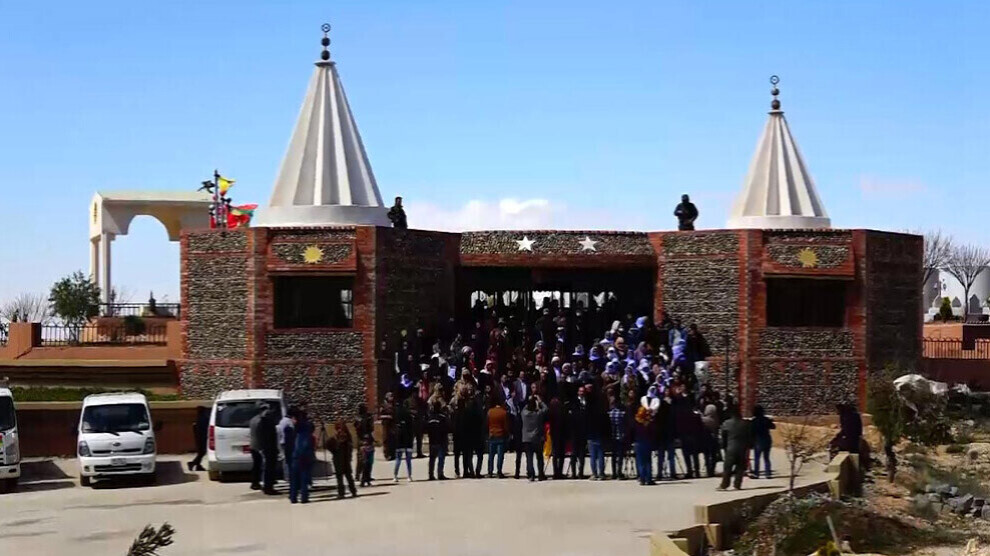Shengal Autonomous Assembly celebrates Yazidi Feast
The Shengal Democratic Autonomous Assembly celebrated the Yazidi Feast, Cejna Êzî.
The Shengal Democratic Autonomous Assembly celebrated the Yazidi Feast, Cejna Êzî.

The Shengal Democratic Autonomous Assembly (MXDŞ) released a celebration message for the Yazidi Feast, Cejna Êzî.
“We believe that these holy days will contribute to the common life of our peoples. We have been subjected to all kinds of massacres for centuries by the enemies of our people, who wanted to eradicate our roots. Recently, they have sought to distance the Yazidi people from their long-established culture. They force the Yazidi people to migrate to Europe and other countries. They prevent our people from returning to their own land,” the MXDŞ stated.
The statement continued, “A special war is being waged against our community and it is claimed that these lands are not safe. However, in spite of all the special warfare attacks, thousands of Yazidis across Shengal have welcomed these holy days with enthusiasm.”
“We hope that these holy days will lead to unity and solidarity among our people, as well as the return of those who have migrated from Shengal. Now, it is time for our people who migrated from home and currently reside in camps to return to the holy land,” the MXDŞ concluded.
CEJNA ÊZÎ
The sun plays an important role in the Yazidi religion, which is why they are often referred to as "Rojperest" (sun worshippers). According to ancient Mesopotamian beliefs, the sun is considered a visible symbol of God, as it represents the source of life. The festival is therefore associated with the winter solstice. Before the solstice, people fast on the occasion of short days. The festival itself is a breaking of the fast, similar to the traditional, pre-Christian understanding of Advent and Christmas. After a three-day fast, the fast is broken together with family, acquaintances and friends. After the communal meal, the Yazidi table prayer is said, and each participant symbolically takes a piece of bread into his or her mouth.
On Friday morning, the Yazidis eat a meal together. All family members congratulate each other on the feast. Children go from house to house and receive sweets. Food is distributed to neighbours in the name of the dead, the graves of the deceased are visited in the Yazidi cemeteries and religious dignitaries recite prayers for the dead. Afterwards, the adults visit the households of their neighbours and friends.